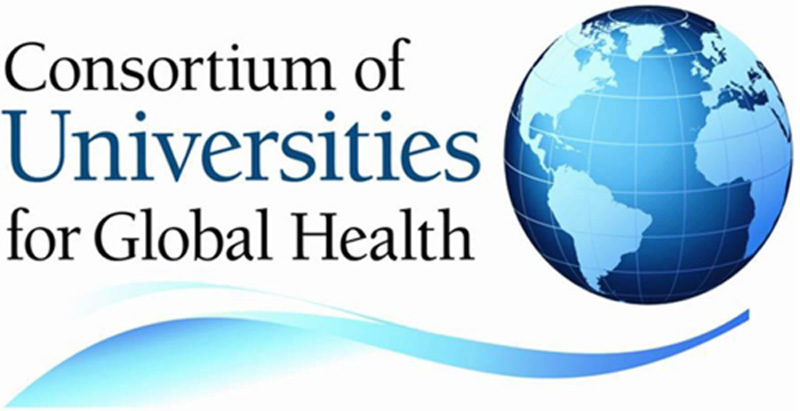July 13, 2017
This webinar, by two internationally recognized climate change experts: Prof. Madeleine Thomson, Senior Research Scientist, Intl. Research Institute, Columbia Univ. and Dr. Jon Patz, Director of the Global Heath Institute, Univ. Wisconsin, outlined the proposed cuts to US agencies involved in climate change that are in front of Congress and the impact they will have on the US and internationally. Ways individuals and communities can address climate change and what can be done to stop these cuts were also discussed.
Speakers:
Jonathan Patz, MD, MPH
Professor & John P. Holton Chair of Health and the Environment, University of Wisconsin-Madison, and Chair of the Global Health Institute
Jonathan Patz, MD, MPH, is Professor & John P. Holton Chair of Health and the Environment at the University of Wisconsin-Madison, where he also directs the university’s Global Health Institute. Patz co-chaired the health expert panel of the first Congressionally mandated US National Assessment on Climate Change and for 14 years served as a lead author for the United Nations Intergovernmental Panel on Climate Change (IPCC) – co-recipient of the 2007 Nobel Peace Prize. Other selected awards include: the Zayed International Prize, 2006; Fulbright Scholar,2014; and American Public Health Association (APHA) Homer Calver Award, 2015. In 1994, Dr. Patz convened the first-ever session on climate change for APHA and in 1997 organized the first-ever climate change/health briefing to an EPA administrator. He’s authored >100 peer-reviewed scientific papers plus multiple reports and three co-edited textbooks, and his March 13, 2017, keynote at the National Academy of Sciences can be viewed here.
Madeleine C. Thomson, PhD
Senior Research Scientist, International Research Institute for Climate and Society (IRI); Senior Scholar, Mailman School of Public Health, Columbia University
Madeleine Thomson is a Senior Research Scientist at the International Research Institute for Climate and Society (IRI) and Senior Scholar at the Mailman School of Public Health, Department of Environmental Health Sciences – at Columbia University, New York where she directs the IRI/PAHO-WHO Collaborating Centre (US 430) for Early Warning Systems for Malaria and Other Climate Sensitive Diseases. She is also a visiting Professor at Lancaster University in the UK.
Her research focuses on the development of new data, methodologies and tools for improving climate-sensitive health interventions Her focus has been on vector-borne diseases (e.g. malaria, onchocerciasis, visceral leishmaniasis etc.) but in recent years has expanded to include air and water-borne infections as well as broader health challenges associated with food security/nutrition and disasters. She is developing a “health and climate” disciplinary interface and a “climate smart” public health community through the ‘Climate Information for Public Health Action (CIPHA)’ initiative.
She trained originally as a field entomologist and has spent much of her career engaged in operational research in support of large-scale health interventions, mostly in Africa. She has a BSc. in Animal and Plant Biology (Sheffield 1982) an MSc. in applied pest management from Imperial College London (1985) and a Ph.D. from the University of Liverpool based on her field work on the ecology and identification of the Simulium damnosum vectors of Onchocerciasis volvulus in Sierra Leone (1989). She joined the IRI in May 2002.
Moderator:
Hon. Keith Martin, MD, PC
Executive Director, Consortium of Universities for Global Health
Dr. Martin is a physician who, since Sept. 2012, has served as the founding Executive Director of the Consortium of Universities for Global Health (CUGH) based in Washington, DC.
Between 1993-2011, Dr. Martin served as a Member of Parliament in Canada’s House of Commons representing a riding on Vancouver Island. During that time he held shadow ministerial portfolios in foreign affairs, international development, and health. He also served as Canada’s Parliamentary Secretary for Defense. In 2004, he was appointed to the Queen’s Privy Council for Canada. His main areas of focus are in global health, foreign policy, security, international development, conservation and the environment.
Dr. Martin has been on numerous diplomatic missions to areas in crisis. He served as a physician in South Africa on the Mozambique border during that country’s civil war. He has travelled widely in Africa, visiting the continent 27 times. Dr. Martin is the author of more than 160 published editorial pieces, has appeared frequently as a political and social commentator on television and radio and has spoken at conferences around the world. He is a board member of the Global Health Council, Jane Goodall Institute and Annals of Global Health. He is an advisor for the Int’l Cancer Expert Corps, Global Sepsis Alliance and McGill University’s Global Health Program and a member of the Lancet-ISMMS Commission on Pollution and Health.
